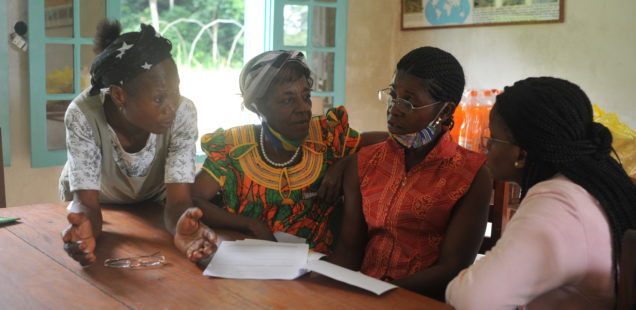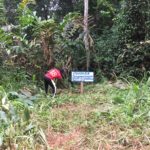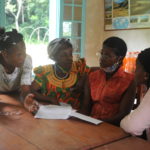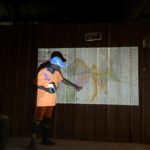
Working in self-determination and mutual solidarity, four villages in the Ogooué-Ivindo region of north-eastern Gabon document, manage, and defend their territories of life
Near the town of Makokou, the capital of the province of Ogooué-Ivindo in north-east Gabon, there are twenty villages inhabited mainly by the Fang and Kota ethnic groups. These villages have been obliged to group together, and distribute themselves along the national roads, originally by the French colonial administration and more recently by the Gabonese administration as well. The villages were originally located on the banks of rivers and had their own authorities and traditional systems of governance and natural resource management. This ‘self-determination’ has been the target of successive administrations, which have not hesitated to fight and suppress anything of customary origin.
In recent years, four of these twenty villages— Ebessi, Ebyeng-Edzua, Latta, and Massaha— have volunteered as leaders in a self-determined process of re-launching ‘community-based management of hunting’. This was just one of the several avenues that were tried to reconnect the villages to their customary lands, promote the healthy use of nature’s gifts, and prevent unsustainable resource extraction by outsiders (loggers, gold miners, hunters from urban areas, etc.).
Through the initiative supported by the Paul K. Feyerabend Foundation, the Gabonese organisation NADA will aid these same four villages to document, manage and defend their territories of life while creating solidarity between them through the exchange of experience and mutual learning. In the four communities, NADA will organise several workshops. The first will provide information on the reality of ‘territories of life’ around the world and will help the residents of the four villages to learn from the work of other communities that are documenting, managing, and defending their territories. The residents of the four villages will then be able to reflect together on their own opportunities and challenges in the Gabonese national and regional context in Ogooué-Ivindo. Finally, each community will plan a specific project to document and/or manage and/or defend its territory of life – with a budget, indicators, and a monitoring plan. NADA believes that the fact that communities can directly manage the funds for initiatives they have planned themselves is a key step in decolonising development and conservation activities. It also believes that this will boost their internal solidarity, as decisions will come from the communities themselves and will have to be planned together and carried out by the whole community.
It goes without saying that specific actions will change from village to village according to their specific circumstances. They may include the demarcation of their territories of life; the documentation and valorisation of village culture and, in particular, of important sites such as sacred areas; the setting up of community patrols to better learn about and defend their territories; the active management of some key gifts of nature; the sensitisation of the authorities and neighbouring villages to the local will to take control of the governance and management of their territories; etc. As important as the results of the initiatives will be the process by which each community becomes self-aware of its own governance and management capacities but also of its collective ‘rights’ and ‘responsibilities’ with regard to its territory of life.
Once the initiatives are completed, each community will be visited by people from other villages to share their experiences, exchange with others and learn lessons together— a key step for inter-community learning. These visits will be followed by a general workshop in Makokou, where NADA will facilitate participatory planning beyond the four initiatives and emphasise the benefits of mutual intra-community solidarity, but also inter-community solidarity, possibly to open up to other communities in Ogooué-Ivindo. NADA believes that this initiative of self-determination and solidarity will pave the way for communities to govern their living territories in Gabon— a fact that could well mark a new horizon for the country.






